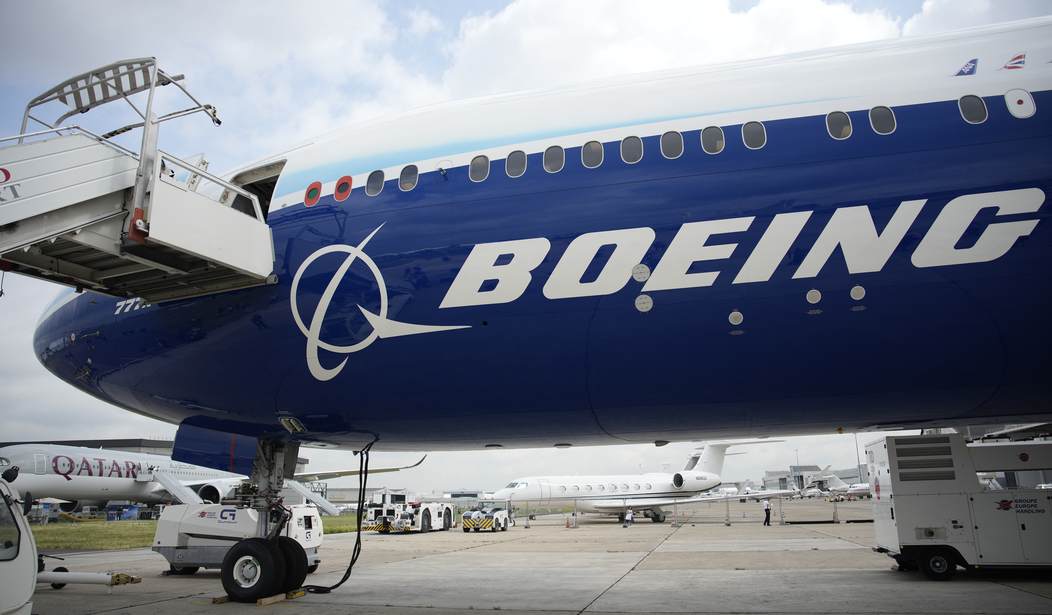As we discussed here at the time, Boeing experienced another in-flight disaster in March of this year where one of their 787 Dreamliner jets suddenly plunged rapidly downward from its normal cruising altitude. At least fifty people were injured and one person suffered a stroke during the traumatic event. This was hardly the only time that one of their planes underwent an anomalous, rapid descent or change of flight attitude recently. An investigation was launched amid speculation over what might be causing these incidents, but we didn't hear much more about it. Now, however, the preliminary investigation has been completed and they think they may have discovered at least part of the cause. As a result, the FAA has ordered fresh inspections of the entire fleet of 787 Dreamlners to be undertaken immediately, with additional testing to follow. None of the plane are being grounded thus far, however. (NBC News)
The Federal Aviation Administration will require inspections of hundreds of Boeing 787 Dreamliners after a LATAM Airlines plane in March took a sudden midair plunge that injured at least 50 people.
According to an FAA statement, the plane dove after a seat in the cockpit jolted forward and disconnected the autopilot system, causing a rapid descent. Since the March incident, the FAA received four additional reports of similar issues, with the latest occurring in June.
The agency identified loose rocker switch caps on the back of cockpit seats as the cause in three of these incidents. The remaining two cases remain under investigation.
First things first. Why did that plane and others like it suddenly lurch into a steep dive? Some of us had originally been speculating that the aircraft had passed through a steep wind sheer zone between weather fronts. Others were quick to jump on that theory and blame the conditions on climate change. (Of course.) But that wasn't it at all. This once again sounds like a significant failure in the assembly and inspection process.
Specifically, the pilot's seat is constructed with a set of "rocker switch caps" on the back of the seat, holding the back in place. Some of the caps were found to be loose or damaged. Some external event, possibly a bit of turbulence, caused them to come loose and the pilot was thrown forward in his seat toward the controls. This caused the autopilot to shut down and the plane went into a rapid, steep dive.
This raises a fresh set of questions that Boeing and the FAA should be answering. The first and most obvious one is whether or not the pilots' seats are being regularly inspected and whether those switch caps are typically among the items inspected. It sounds as if the answer will turn out to be that they are not. But equally disconcerting is the operation of the autopilot. If the aircraft is flying along on a level track at altitude and some misstep in the cockpit causes the autopilot to suddenly switch off, is its default mode to immediately send the craft into a steep, rapid descent violently enough to throw dozens of passengers into the ceiling? That doesn't seem like a very safe default in my untrained opinion.
The FAA has now ordered the inspection of 158 U.S.-registered airplanes and 737 airplanes worldwide. The domestic inspections are to be completed in 30 days. If all they are doing is inspecting the backs of the pilot seats, I suppose it shouldn't take very long. Boeing is saying that they "fully support" the directive, but that's what they always say. Yet so many of these ongoing issues seem to keep coming back to failed inspection procedures over and over again. These types of problems should have been detected and corrected at the factory. Failing that, they should be looked at during pre-flight inspections. One whistleblower went so far as to claim that Boeing had been falsifying inspection records to speed up the line and meet their delivery quotas. That may turn out to be impossible to prove, but if verified, heads need to be rolling inside the company. And that needs to take place before we have passenger heads literally rolling if one of those birds comes down.









